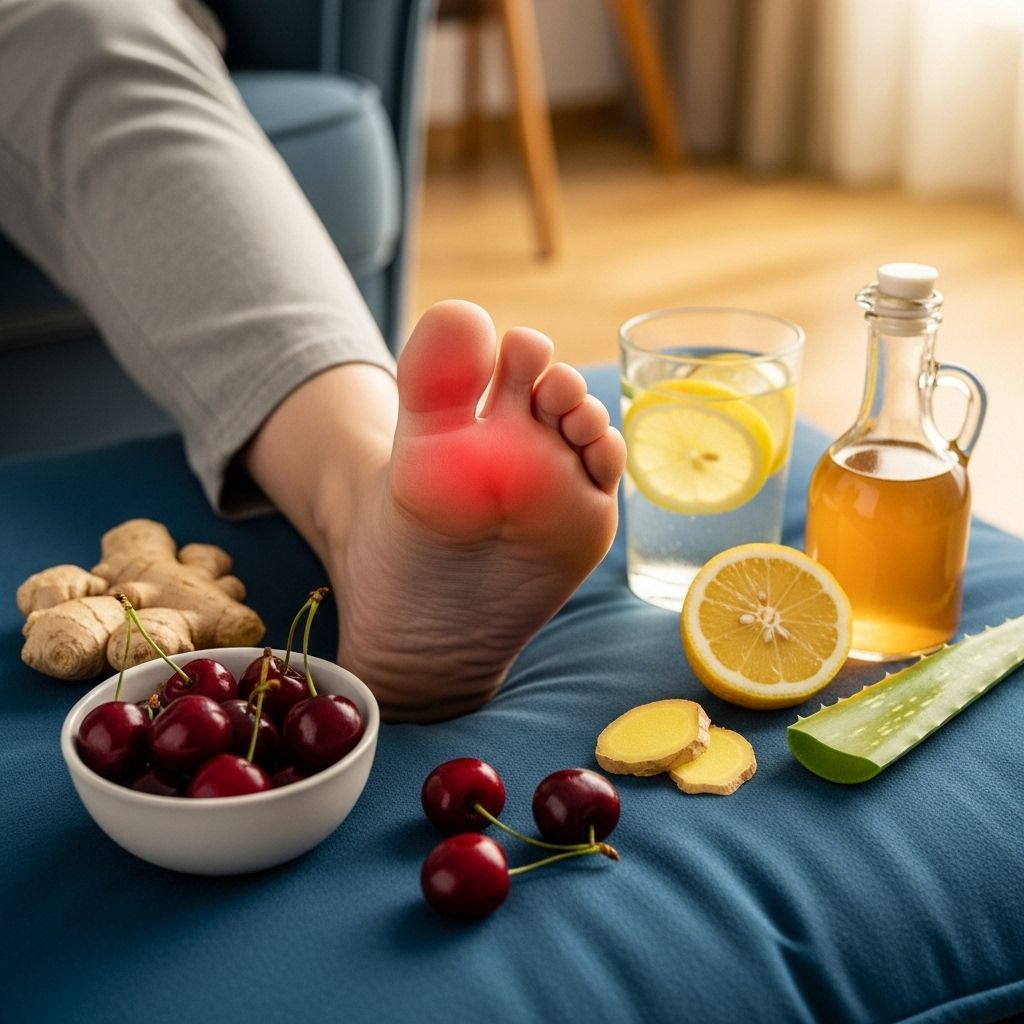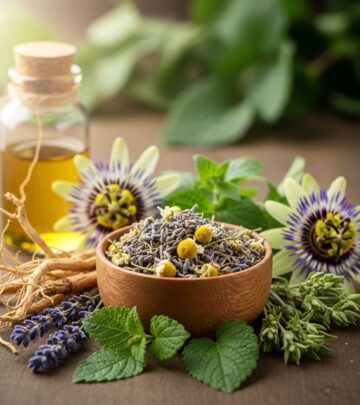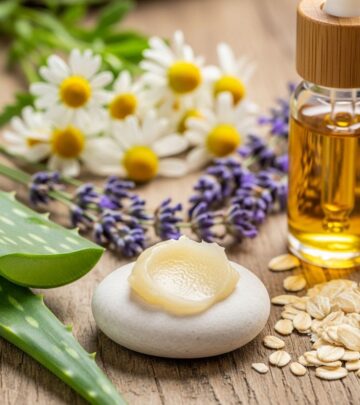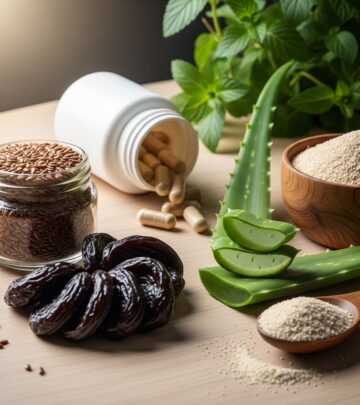Relieving Gout: Home Remedies for Foot and Toe Pain
Soothe the Suffering: Effective Home Remedies for Gout Pain Management

Understanding Gout and Its Symptoms
Gout is a form of inflammatory arthritis that often causes sudden and severe pain, usually in the big toe, but can affect other joints like the feet, ankles, and knees. It is caused by the buildup of uric acid in the body, leading to the formation of urate crystals in the joints, which triggers intense pain and inflammation. Symptoms include swelling and intense pain in the joints, often likened to feeling like the affected area is on fire.
Some people may experience warning signs before a gout attack, such as burning, itching, stiffness, or a tingling sensation in the joint an hour or two before the flare-up. Recognizing these signs can provide valuable time to implement preventative measures.
## 1. Relaxation: Taking a Load Off
When experiencing symptoms of a gout flare-up, it is crucial to take the first step by relieving pressure on the affected joints. Getting off your feet and finding a comfortable position can help reduce the strain on your joints. If possible, elevate your foot slightly to aid in reducing swelling and promoting blood flow.
## 2. Cold Compression: Cooling Down the Pain
Cold compresses are a common remedy for many types of pain, including gout. Cold temperature can help reduce inflammation, and the compression aspect can soothe the aching joints. For gout specifically, cold is the preferred temperature, as it can help bring down inflammation and provide relief from pain.
Some people may recommend hot water soaks for intense inflammation, but caution is advised as hot water can occasionally exacerbate the condition. Always start with cold and monitor the response before considering a switch to warm or hot water.
## 3. Dietary Changes and Uric Acid Reduction
Dietary adjustments play a significant role in managing gout. Uric acid levels can be reduced by avoiding foods high in purines, such as organ meats and seafood like anchovies, and by increasing consumption of low-purine foods like fruits, vegetables, and whole grains. Additionally, staying hydrated is key to helping the kidneys flush out excess uric acid.
## 4. Minerals and Spices: Natural Anti-Inflammatory Agents
Several minerals and spices offer natural anti-inflammatory properties that can help alleviate gout symptoms:
- Ginger: Known for reducing serum uric acid levels and providing quick relief when consumed as a paste or supplement.
- Magnesium: Helps reduce inflammation and is beneficial for gout management.
- Lemon Juice and Turmeric: Both can be dissolved in drinks to provide acid-neutralizing benefits. Turmeric contains curcumin, which has potent anti-inflammatory properties.
## 5. Weight Loss: Reducing Pressure and Swelling
Maintaining a healthy weight is crucial for managing gout symptoms. Excess weight increases pressure on the lower extremities, leading to increased swelling and pain. Losing a few pounds can significantly reduce the intensity of gout attacks as well as alleviate other foot-related issues.
## 6. Anti-Inflammatory Drugs: When Home Remedies Aren’t Enough
Sometimes, despite trying all the home remedies, gout pain may persist. In such cases, over-the-counter anti-inflammatory drugs like ibuprofen or naproxen can be very effective. If these do not provide sufficient relief, prescription medications like celecoxib, indomethacin, meloxicam, or sulindac may be prescribed by a healthcare provider.
## 7. Lifestyle Adjustments: Long-Term Management
Managing gout effectively requires long-term lifestyle adjustments. This includes maintaining a balanced diet, staying hydrated, avoiding alcohol (which is high in purines), and engaging in regular physical activity to maintain a healthy weight. Additionally, stress management techniques like meditation, yoga, or reading can help reduce stress, a known trigger for gout attacks.
Frequently Asked Questions (FAQs)
Q: What are the warning signs of a gout attack?
A: Warning signs can include a burning, itching, stiffness, or tingling sensation in the joint an hour or two before the flare-up.
Q: How can I prevent gout attacks?
A: Preventing gout attacks involves maintaining a healthy diet, staying hydrated, avoiding alcohol, losing weight if necessary, and managing stress.
Q: What are some natural remedies for gout?
A: Natural remedies include ginger, magnesium, lemon juice, turmeric, and cherry juice. These have anti-inflammatory properties and can help reduce uric acid levels.
References
- https://www.footandanklegroup.com/7-home-remedies-for-gout-foot-toe-pain/
- https://www.footandanklegroup.com/gout-treatment-guidelines-for-foot-and-ankle/
- https://www.medicalnewstoday.com/articles/324972
- https://www.arthritis.org/diseases/more-about/managing-a-gout-attack
- https://ankleandfootcenterstn.com/ankle-gout/
- https://www.hss.edu/health-library/conditions-and-treatments/gout-risk-factors-diagnosis-treatment
- https://www.hvfa.com/post/home-remedies-for-gout
- https://ankleandfootcenters.com/gout-in-ankle/
- https://www.ncbi.nlm.nih.gov/books/NBK546606/
Read full bio of medha deb












